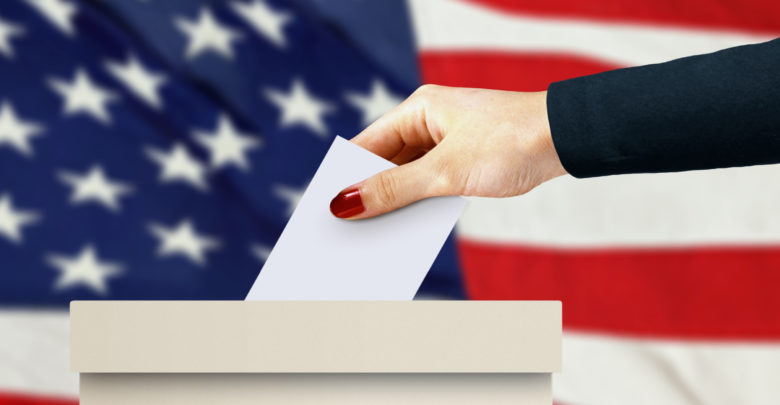How FBI Director Comey Altered The Outcome Of The 2016 Presidential Election
He made terrible political judgments that helped Trump win.
Over the weekend, the New York Times published an extraordinary article under the headline, “Comey Tried to Shield the FBI From Politics. Then He Shaped an Election.” The article reported on decisions made by FBI Director James Comey that had a major, and probably dispositive, impact on the 2016 presidential election.
The key decisions were to twice make unprecedented public statements about the FBI’s investigation into whether Hillary Clinton, during her tenure as Secretary of State, had committed a crime by sending or receiving classified information on a private email server. Coming in the midst of a heated presidential campaign, those statements were bound to become highly politicized and, as the Times headline suggests, shape the outcome of the election, whether or not that was Comey’s intention.
In the first of those statements, while formally exonerating Clinton from charges of criminal wrongdoing, Comey buried her under an unprecedented, withering personal attack. He did this by announcing that although a decision had been made not to seek criminal charges against Clinton, he nevertheless had found her conduct to have been “extremely careless.”
As noted by the Times, Comey’s criticism “was so blistering that it sounded as if he were recommending criminal charges. Only in the final two minutes did Mr. Comey say that ‘no charges are appropriate in this case.’”
Comey’s attack was not only blistering, it was also contrary to longstanding FBI and Justice Department policies not to comment on investigations that don’t result in prosecutions, and not to make statements that insert the FBI into the political maw of a presidential election.
The second of Comey’s statements was to inform Congress, less than two weeks prior to election day, that the FBI had reopened the previously closed Clinton investigation upon the discovery, in an unrelated investigation, of a trove of emails that might ― or might not ― be pertinent to the Clinton investigation.
Donald Trump, congressional Republicans, and the press all jumped on the “might” part of this equation, rather than the “might not.”
It turned out that “might not” was the right answer. But that didn’t matter because, although Comey later conceded that there was nothing in the newly discovered emails that changed the FBI’s decision not to recommend prosecution, the damage had already been done. Comey’s announcement that the FBI had reopened its Clinton investigation, coming so shortly before the election, and just when Clinton’s email mess appeared to have been put to bed, was a political nuclear bomb.
“This changes everything,” crowed Trump. Jason Chaffetz, the Republican Representative from Utah who had been leading the Clinton lynch mob for years, could hardly restrain his joy. “Case reopened,” he tweeted. The Morning Joe crowd solemnly assured its listeners that there was no way that Comey would have made such an announcement if he weren’t confident that there was a raging fire behind the smoke thrown up by the new emails.
This time, Trump got it right. Comey’s announcement did change everything. It probably cost Clinton the election. A Princeton Election Consortium study found that while many factors influenced Clinton’s loss, the decisive 4-point swing just prior to the election coincided exactly with the release of the Comey letter. At least half of that swing persisted through election day, an impact “larger than the victory margin in Michigan, Pennsylvania, Florida, and Wisconsin.”
Contrary to Trump’s overblown rhetoric, his margin of victory was paper thin.
Clinton fell 38 electoral votes short of victory. Had she won just three of the states mentioned in the Princeton study, Michigan (16 electoral votes), Wisconsin (10) and Pennsylvania (20), Clinton would have been elected. Prior to Comey’s announcements about reopening the email investigation, Clinton was comfortably ahead in the polls in all three of those states.
As it turned out, Trump’s combined margin of victory in those states was under 79,000 votes. In Michigan, Trump won by fewer than 11,000 votes, or about two-tenths of one percent. In Wisconsin, Trump’s margin was 23,000 votes, or eight-tenths of one percent. In Pennsylvania, Trump received 45,000 more votes than Clinton, a victory of about seven-tenths of one percent.
Yes, there were dozens of missteps and miscalculations that can be used to make a convincing case that many of Clinton’s wounds were self-inflicted. But that doesn’t change the fact that, as lawyers like to say, “but for” the Comey letter, Clinton almost certainly would have won an election that turned out to be as close as this one.
While the fact that Comey’s actions changed the course of the election seems beyond dispute, his motivations for doing so are less clear. According to the Times article, people around Comey insist that he played it as straight as he could.
Out of a basket filled with bad options, the argument goes, Comey chose the one that he considered the least bad.
Maybe so. But that doesn’t alter the fact that Comey’s decision to go public with unprecedented statements about the the Clinton investigation, while at the same time keeping quiet about an ongoing investigation into whether Donald Trump was complicit in Russia’s criminal interference with the presidential election, was a profoundly political act.
Perhaps not “political” in the strictly partisan sense of deliberately favoring one candidate over another, but political nonetheless.
The FBI has a longstanding policy not to comment on, or even acknowledge the existence of, ongoing criminal investigations. This policy protects both the integrity of the investigation and the privacy of individuals caught up in it.
Comey followed that policy to the letter with respect to the FBI’s investigation of Trump’s possible complicity in Russia’s tampering with our election. But he deviated from it when he first announced that the Clinton investigation had been closed, and then again when he informed Congress, just days before the election, that he had reopened it.
Comey invoked a rare “public interest” exception to the FBI’s strict no-comment policy in defense of his highly irregular trashing of Clinton at his press conference announcing that the Clinton investigation would be closed without a recommendation of prosecution.
But his explanation for informing Congress that he had re-opened the Clinton investigation, while remaining silent about the ongoing Trump investigation, is even more troubling.
Comey’s rationale for this seeming double standard, according to his associates interviewed by the Times, was his fear that the FBI might be harmed as an institution if he remained silent about re-opening the Clinton investigation. Comey’s nightmare scenario was that if Clinton were elected, and if after the election it was discovered that he had remained silent about re-opening the investigation, his reputation as a straight shooter and the FBI’s institutional credibility could suffer irreparable damage.
Maybe that was a legitimate concern. But why wasn’t he equally worried that he and the FBI might suffer reputational damage if he remained silent about the Trump investigation, and Trump went on to win the election? Which, by the way, is exactly what happened, and the FBI is still standing.
Legitimate or not, Comey’s rationale was a manifestly political concern, not a law enforcement concern. The FBI is not in business to protect the reputation of its Director. Or to bolster its own credibility.
By lobbing this grenade into the election just days before it took place, Comey had to know that he would profoundly impact the result of the election.
The argument that his indifference to the political impact of his conduct proves his integrity as a neutral law enforcement officer is nonsense.
It is one thing to play it straight, follow the book and let the chips fall where they may.
But Comey didn’t play it straight. And he didn’t follow the book. He overruled two longstanding FBI policies — not to comment about ongoing investigations, and not to lob political grenades into presidential elections — out of a quintessentially political concern to protect his reputation and bolster the credibility of his agency.
In the end, Comey’s unblemished history of personal integrity earns him the benefit of the doubt that he did not act with a deliberate purpose to swing the election to a favored candidate.
But in this case, he made terrible political judgments that are likely responsible, at least in large part, for the Trump presidency.
Up Next: Now that the Times has given us the most complete story yet on how Comey impacted the 2016 election, it’s worth going back to take a look at the underlying “scandal” about the Clinton emails. Was it really a scandal, or just a mess? Coming soon.





